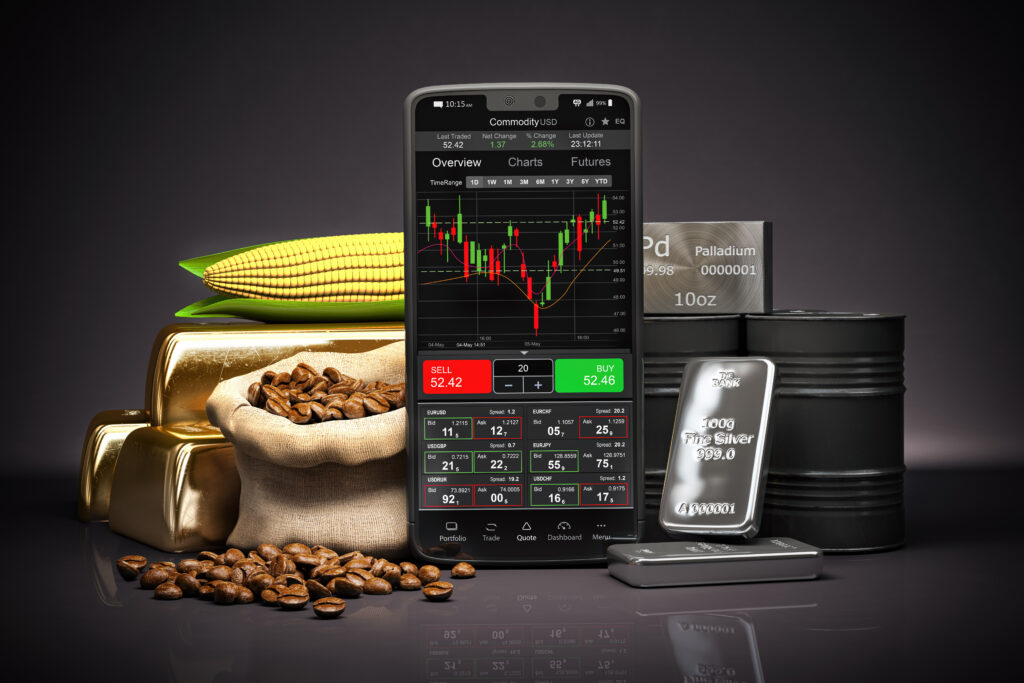Forex Markets and the Economic Impact of Global Pandemic Recovery
Introduction
The world has been grappling with the unprecedented challenges posed by global pandemics, with the COVID-19 pandemic being the most recent and impactful. Beyond the immediate health crisis, these pandemics have reverberated throughout the global economy, reshaping financial markets, trade dynamics, and economic policies. In this article, we will analyze the ongoing economic recovery from global pandemics like COVID-19 and its profound effects on forex markets. We’ll delve into various factors, including stimulus measures, shifts in global trade, and the pace of recovery in different economies.
Stimulus Measures and Forex Markets
One of the central responses to combat the economic fallout of global pandemics has been the implementation of massive stimulus measures by governments and central banks. These measures include fiscal stimulus packages, interest rate cuts, and quantitative easing programs. The primary goal has been to stabilize economies and restore confidence in financial markets.
Shifts in Global Trade
Global pandemics disrupt international trade flows in several ways, including supply chain disruptions, export restrictions, and changes in consumer behavior.
2.1 Supply Chain Disruptions
Global pandemics like COVID-19 have wreaked havoc on international trade by causing significant supply chain disruptions. These disruptions have far-reaching consequences that reverberate throughout the forex markets. Here’s a more in-depth look at the impact of supply chain disruptions:
2.1.1 Multinational Corporations’ Earnings
Multinational corporations (MNCs) operate across borders and rely on efficient supply chains to produce and distribute their products. When supply chains are disrupted due to lockdowns, travel restrictions, or labor shortages, MNCs often experience delays, increased costs, and production interruptions. These challenges can directly affect their earnings and profitability, which, in turn, can influence forex markets.
Investors and forex traders closely monitor the financial performance of MNCs, as it provides insights into the overall health of the global economy. When MNCs face supply chain disruptions, their stock prices may react, leading to changes in investor sentiment and currency valuations.
2.1.2 Flow of Goods and Services
Forex markets are also sensitive to the flow of goods and services across borders. Disruptions in the supply chain can lead to a reduction in the volume of trade between countries. Reduced trade activity can impact currency exchange rates as traders factor in the potential economic consequences of such disruptions.
For instance, if a country heavily relies on imports for essential goods, such as medical supplies or energy resources, a disruption in the supply chain can lead to increased demand for foreign currencies to purchase these necessities. This heightened demand can put upward pressure on the foreign currencies, affecting exchange rates.
2.2 Export Restrictions
During global pandemics, governments may impose export restrictions on essential medical supplies and other critical goods. These trade barriers are implemented to ensure that domestic needs are met, but they can have significant implications for forex markets:
2.2.1 Ripple Effect on Forex Markets
Export restrictions can create a ripple effect in forex markets, particularly for countries that heavily rely on exports of specific goods. When a country imposes restrictions on exporting essential medical supplies, it can lead to a shortage of these products in the global market. As a result, the countries that rely on these imports may experience currency fluctuations.
For instance, if a country is a major exporter of medical equipment and suddenly restricts its exports, countries dependent on those supplies may see their currencies weaken due to concerns about shortages and higher costs. Forex traders react to these concerns by adjusting their positions, leading to changes in exchange rates.
2.3 Changes in Consumer Behavior
Global pandemics trigger dramatic changes in consumer behavior, impacting various industries in unique ways. Forex traders keenly analyze these shifts to assess potential impacts on currencies. Here’s a closer look at the influence of consumer behavior on forex markets:
2.3.1 Industry-Specific Effects
Consumer behavior changes in response to global pandemics, leading to varying effects on industries. For example, during lockdowns and social distancing measures, industries related to travel and hospitality often suffer significant setbacks. Conversely, sectors like e-commerce, telecommunication, and healthcare may experience increased demand.
Forex traders pay close attention to these industry-specific changes. A rise in demand for products and services from certain industries can boost the economic outlook of countries with strong representation in those sectors. This, in turn, can lead to increased demand for their currencies.
2.3.2 E-Commerce Boom
The shift towards online retail and e-commerce during global pandemics has been particularly pronounced. Countries with robust e-commerce industries stand to benefit, and their currencies may become more attractive to investors.
For example, if a country has a well-developed e-commerce infrastructure and experiences a surge in online shopping, it can stimulate economic growth. Forex traders may respond by showing increased interest in the currency of that country, expecting positive economic indicators.
In conclusion, global pandemics disrupt international trade in multifaceted ways, and these disruptions have significant implications for forex markets. Supply chain disruptions, export restrictions, and shifts in consumer behavior all play a role in shaping forex market dynamics. Forex traders must continuously analyze these factors to make informed decisions in a dynamic and ever-changing trading environment.
Recovery Pace in Different Economies
The pace of economic recovery following a global pandemic can vary significantly from one country to another. Factors influencing this include vaccination rates, government policies, and the structure of the economy.
Conclusion
The global pandemic recovery has undeniably transformed the forex markets, presenting both unprecedented challenges and lucrative opportunities for traders worldwide. The intricate interplay of various factors, including stimulus measures, shifts in global trade dynamics, and the uneven pace of economic resurgence across different economies, has shaped a dynamic and ever-evolving landscape within the forex arena.
Forex traders, whether seasoned professionals or newcomers, must remain vigilant and well-informed in this environment, as global pandemics continue to exert their influence on the world’s economic stage. Here, we recap the key takeaways and emphasize the critical role of staying informed:
- Stimulus Measures Matter: Government and central bank responses to global pandemics, such as fiscal stimulus packages, interest rate adjustments, and quantitative easing programs, significantly impact currency valuations. Traders must monitor these policies closely to seize trading opportunities arising from currency fluctuations.
- Safe-Haven Currencies Shine: During times of crisis, safe-haven currencies like the US dollar, Japanese yen, and Swiss franc become favored havens for investors seeking stability. As governments implement stimulus measures, demand for these currencies may fluctuate, impacting forex market dynamics.
- Global Trade in Flux: Global pandemics disrupt international trade through supply chain disruptions and export restrictions. These disruptions affect multinational corporations and the flow of goods and services across borders, prompting forex markets to react to changing trade patterns and currency valuations.
- Consumer Behavior Alters Industries: Changing consumer behavior, amplified during global pandemics, affects various industries differently. Forex traders analyze these shifts to gauge potential currency impacts. For example, the surge in online retail may favor currencies of countries with robust e-commerce sectors.
- Vaccine Rollouts Shape Recovery: The speed and effectiveness of vaccine distribution play a pivotal role in economic recovery. Forex traders closely track vaccination rates as they can influence currency valuations. Rapid immunization processes can lead to a quicker economic rebound and a stronger local currency.
- Government Policies Drive Recovery: Government policies, including lockdowns, travel restrictions, and fiscal stimulus, have a profound impact on economic recovery. Forex markets react to policy announcements and changes, providing insights into a country’s economic prospects.
- Economic Structure Matters: Countries with diversified and resilient economies often recover more swiftly than those dependent on a single industry. Forex traders consider a nation’s economic structure when evaluating a currency’s outlook.
In a world where global pandemics continue to shape economic landscapes, staying well-informed about these multifaceted factors is not only beneficial but imperative for those involved in forex trading. The forex market remains exceptionally responsive to global events, making it essential for traders to remain vigilant and adapt to ongoing developments related to the economic recovery from global pandemics like COVID-19. In this dynamic environment, knowledge is not just power—it’s the foundation of success.
Read our latest article on Global Food Security
FAQs
- What are stimulus measures, and how do they affect forex markets?
- Stimulus measures are government and central bank actions, including fiscal stimulus packages, interest rate cuts, and quantitative easing, aimed at stabilizing economies during global pandemics. They can significantly impact forex markets by influencing currency valuations.
- Why do safe-haven currencies like the US dollar become popular during crises?
- Safe-haven currencies, like the US dollar, are sought after during crises due to their perceived stability. Investors flock to these currencies as a hedge against uncertainty and risk.
- How does global trade disruption affect forex markets?
- Global trade disruptions, such as supply chain interruptions and export restrictions during global pandemics, can impact forex markets by influencing the earnings of multinational corporations and altering currency valuations.
- Why do forex traders closely follow vaccination rates?
- Forex traders monitor vaccination rates as they provide insights into a country’s economic prospects. Faster immunization processes can lead to a swifter economic recovery, potentially strengthening the local currency.
- What role do government policies play in forex market dynamics?
- Government policies, including lockdowns, travel restrictions, and fiscal stimulus, have a profound impact on forex markets. Announcements and changes in these policies offer insights into a country’s economic direction.
- How does consumer behavior during global pandemics affect forex markets?
- Changing consumer behavior influences various industries differently. Forex traders analyze these shifts to gauge potential currency impacts. For instance, increased demand for online retail may favor currencies of countries with strong e-commerce sectors.
- Why is the economic structure of a country significant for forex traders?
- The economic structure matters because countries with diverse and resilient economies tend to recover more swiftly from global pandemics. Forex traders consider a nation’s economic structure when evaluating a currency’s outlook.
- What are carry trades in forex trading?
- Carry trades involve borrowing in a currency with a low-interest rate and investing in a currency with a higher interest rate. Forex traders use this strategy to profit from interest rate differentials.
- How do forex markets respond to fiscal stimulus packages?
- Forex markets react to fiscal stimulus packages by assessing their size and effectiveness. Robust stimulus plans can instill confidence in a currency, while a lack of support may lead to depreciation.
- Why is staying informed about global events crucial for forex traders?
- Staying informed about global events is essential for forex traders because the forex market is highly responsive to economic developments. Being aware of factors like stimulus measures, trade disruptions, and vaccination rates helps traders make informed decisions in this dynamic environment.
Click here to read more on Global Pandemic Impact On Forex

